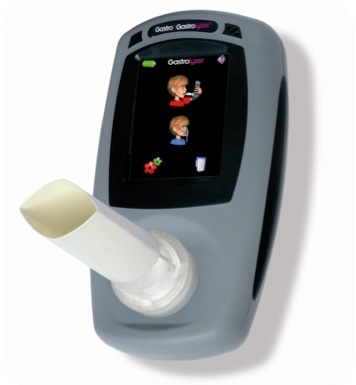
Fructose, Lactose and Lactulose Hydrogen Breath Test
Only $76 per Test with Medicare Rebate
As part of Direct Endoscopy’s wide range of diagnostic services we are proud to offer a range of hydrogen breath tests for the investigation of intolerance to common dietary components, such as fructose and lactose.
If you suffer from one or more symptoms of a gastrointestinal disorder, such as lactose or fructose intolerance, it’s important to have these thoroughly investigated – ignoring these symptoms can result in much nastier problems further down the track. I’m sure we don’t need to remind you of the importance of looking after your body, not just for the short-term benefits, but for long-term health and well-being!
Once you have read this important information and would like to have a hydrogen breath test, you will need to follow this procedure:
Step 1. Make an appointment by calling 9781 5959
Step 2. Print out the Referral Form to take you your own doctor
Step 3. Read this page in preparation for your test
What is a hydrogen breath test?
The test is based on breath Hydrogen analysis and provides information about the digestion of certain sugars or carbohydrates, e.g. milk sugar (lactose) or fruit sugar (fructose). The pattern and quantity of hydrogen produced in your exhaled breath at intervals during the test will help determine if you are intolerant to, or have difficulty in processing or absorbing certain sugars.
How does it work?
Hydrogen gas in the body is produced from intestinal bacteria. Bacteria, normally in the large intestine, produce hydrogen through fermentation of carbohydrates – such as lactose, fructose and other sugars. Some of the hydrogen produced by bacteria is absorbed by intestinal mucosa into the bloodstream and is transported to the lungs, where it can be detected in the breath.
Normally, such sugars are broken down and absorbed in the small intestine and very little reaches the large intestine to be fermented by bacteria. However, a number of adults develop a reduced ability to process and absorb certain sugars in the small intestine. They are therefore carried forward to the colon where they are metabolised by colonic bacteria producing a large amount of hydrogen that is measured in the breath.
Fructose Intolerance is caused when absorption of fructose is impaired by deficient fructose carriers in the small intestines enterocytes, resulting in an increased concentration of fructose in the entire intestine. Fructose that is not properly absorbed is then fermented by the intestinal bacteria present, which produces hydrogen, carbon dioxide, methane and short-chain fatty acids. It is this abnormal increase in hydrogen that can be detected with the HBT.
Lactose Intolerance occurs when your body is unable to digest lactose – a result of insufficient levels of lactase (an enzyme that catalyses the hydrolysis of lactose into glucose and galactose) in your digestive system. HBT is the most accurate lactose intolerance test, and works very similar to its use for detecting fructose intolerance; the patient is given a dose of lactose – if the lactose cannot be digested, enteric bacteria will metabolize it and produce hydrogen, which, along with methane (if produced), can be detected on the patients breath.
Lactulose (SIBO Breath Test). Small intestinal bacterial overgrowth (SIBO) occurs when there is an abnormal increase in the overall bacterial population in the small intestine — particularly types of bacteria not commonly found in that part of the digestive tract. Symptoms of SIBO include diarrhoea, abdominal bloating, nausea and abdominal pain. SIBO may lead to poor absorption of nutrients including fats, carbohydrates and protein as well as vitamin deficiencies.
What symptoms might I have to suggest a possible benefit from hydrogen breath testing?
There are a number of digestive symptoms which may arise from the malabsorption of sugars, and consequent production of excessive gas in the large bowel. These include:
- bloating
- wind
- abdominal cramping
- flatulence
- rumbling
- loose stools
- nausea
Some people also report other symptoms, when they eat foods containing sugars which they are unable to digest. Some examples include:
- headache
- fatigue
- restlessness or irritability
- dizziness
- cold or heat sensations/tingling
How is a hydrogen breath test done?
On arrival at the Centre, one of the staff will complete a brief questionnaire with you to check on your symptoms and that there is no problem in doing the test. You will then be asked to breathe out into a handheld device to collect the first breath hydrogen sample. After drinking the test sugar solution (e.g. lactose) further breath samples will be collected every 30 minutes for the next 2 hours, depending on the results or information required. You will be asked to rate your symptoms at the time of each breath sample and these answers will be documented.
How long does a hydrogen breath test take?
The test takes between 2 and 3 hours.
Are there any risks or side effects?
The test is very safe and, apart from the possible reproduction of some or all of your symptoms for a short time has no significant side effects or risks.
When do I get the results?
A full report, including symptom and breath hydrogen analysis and interpretation, will be sent to you and your doctor within one week of the test.
What does it mean if the test is positive?
This suggests that some or all of your digestive symptoms may be due to your being unable to process certain sugars adequately in the bowel.
What can be done if the test is positive?
If the test shows that you are unable to absorb certain sugars, you may benefit from a formal dietetic assessment and advice.
I would like a hydrogen breath test.
For further information about this new service, or to make an appointment, please call 9781 3090.
Test Preparation
1 week before your test:
- NO Oral and IV Antibiotics or probiotics (no yoghurt). Skin creams, eye and ear drops are OK.
- NO Colonoscopy or Barium Meal Enema procedures.
1 full day before your test:
☑ YOU CAN ONLY HAVE
- ✓ Lactose free milk
- ✓ Black tea or coffee (no sugar)
- ✓ Water or soda water
- ✓ Eggs
- ✓ Chicken, without the skin
- ✓ Steamed or grilled fish
- ✓ Meat, but no processed meat and no flavourings (e.g. no sausages or bacon)
☒ YOU CANNOT HAVE
- × NO Milk and Dairy Products. Lactose-free milk (eg. Zymil®), soy milk, and rice milk are OK
- × NO Canned Fruit or Honey
- × NO Garlic or Onion
- × NO Fruit or Vegetables
- × NO Fruit Juice, Soft Drinks, Sports Drinks and Alcohol
- × NO High Fibre Foods (eg. no bread, rice, pasta, cereal, beans & legumes, bran, oats)
- × NO Fibre Supplements (eg. Metamucil®)
- × NO Laxatives
- × NO Tofu
- × NO Processed Meat
- × NO Flavourings (e.g. no salt or pepper)
FAST from 9pm the night before test:
You may continue to drink plain water leading up to the test.
On the morning of your test:
- NO Smoking and Continue to Fast. Brush your teeth thoroughly with water ONLY (no toothpaste)
- Continue to take your normal medication with plain water.
- Refrain from physical exercise for 1 hour before your test.
Locations for tests
Omnipath Pathology
Main Laboratory is located at:
338 South Road, Hampton East 3188
MEET OUR SPECIALISTS
- When to get a colonoscopy, why you need one and how it all works - November 22, 2021
- Why Your Doctor Wants You to Get a Colonoscopy - October 12, 2021
- Why Australia’s Bowel Cancer Screening Age Should Be Lowered to 40 - July 23, 2021
